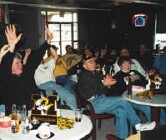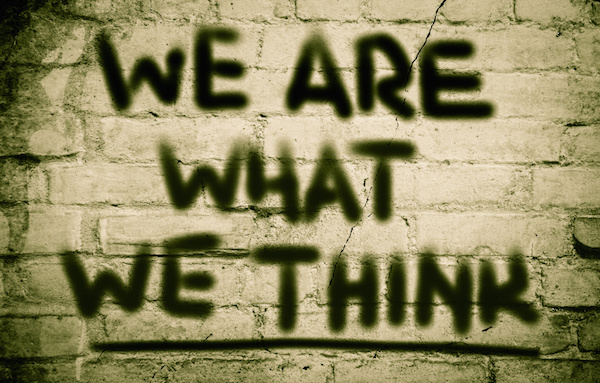
SUNDAY, Feb. 3 (HealthDay News) — Hey, sports fans: It doesn’t matter if your team wins or loses, just as long as the game is a down-to-the-wire nail-biter, with heroes to laud and villains to loathe.
That’s the conclusion of a new study of what can really drive a fan’s rooting interest, although not every supporter of Sunday’s Super Bowl showdown between the Baltimore Ravens and the San Francisco 49ers might agree.
In research led by Colleen Bee, an assistant professor of marketing at Oregon State University, 133 participants viewed speed-skating competitions featuring unfamiliar athletes.
The study authors created narratives for the athletes, casting them either as heroes or villains. The “heroes” did charitable work for causes such as cancer prevention, spent time with sick children, dedicated their performance to Mom and were considerate to fans. The “villains” were arrested for driving under the influence, took performance-enhancing drugs, and were rude and ungracious.
Now, the participants had someone to cheer for — or against. And that enhanced their experience.
“When an athlete that they liked won a game, people felt the same emotions as when someone they disliked lost,” Bee said. “They felt high levels of relief, low levels of disappointment and high levels of satisfaction.”
Viewers experienced the reverse emotions if their hero faltered or their villain prevailed. “However, one of the interesting things with overall enjoyment of the experience — how enjoyable was this for you to watch — was that it didn’t vary based on who won or lost,” she said.
The study appeared online recently in the Journal of Media Psychology.
In past Super Bowl thrillers, such as when the Pittsburgh Steelers beat the Arizona Cardinals with a fierce drive in the final 35 seconds of the game, you didn’t have to like Steeler quarterback Ben Roethlisberger to be glued to the edge of your seat.
If this weekend’s Baltimore-San Francisco game is another nail-biter, viewers will again feel that nervous tension. Don Forsyth, a professor at the University of Richmond and an expert on sports fan psychology, said this suspense is healthy.
“Why do people seek that out? It certainly strengthens the emotional experience,” Forsyth said. “We want to feel positive emotions. When we’re uncertain of the outcome, it makes the positive emotions even stronger. On the other side, it makes the negative emotions even stronger, too. The uncertainty intensifies our reaction — which is good.”
But suspense is not guaranteed on Sunday. Historically, many past Super Bowls have been boring or blowouts. So, if you’re not into fantasy football or the X’s and O’s, the personal narratives of the players and coaches on the field are what keeps you in the game.
“That story is important, both positive and negative,” said study author Bee. “What people think of you, it affects whether they’re rooting for or against you. And sponsors want to be affiliated with positive brands or positively viewed brands.”
The upcoming Super Bowl has its engaging narratives. For the first time ever, the opposing head coaches are brothers: Jim Harbaugh (San Francisco) and John Harbaugh (Baltimore). You might identify with the sibling rivalry or empathize with their parents who will see one son triumph while the other does not.
“These stories can increase interest and they can give casual fans a reason to watch and support,” Bee said. “Maybe in the Olympics, sports or athletes that they don’t really know, or even if it’s something like the Super Bowl, they might not be a fan of either team but they’re going to watch it anyway.”
Forsyth said that the new study “confirms that it’s not a wholly irrational process, these positive emotions that people have after their favorite team or competitor wins,” he said. “People are rationally processing information and making decisions. Still, it’s shockingly strong — your emotions are when your team wins and loses. People get more emotional about sports than they do all kinds of other things in their lives.”
For her part, Bee concluded: “Not that this is a consolation to fans whose favorite teams or athletes lose, but if it’s a close game they’ll generally still enjoy the experience. And you’ll often hear them saying things like, ‘Oh, I’m disappointed they lost, but, wow, that was a good game.'”
More information
The U.S. Centers for Disease Control and Prevention offers tips for having a safe and healthy Super Bowl celebration.

